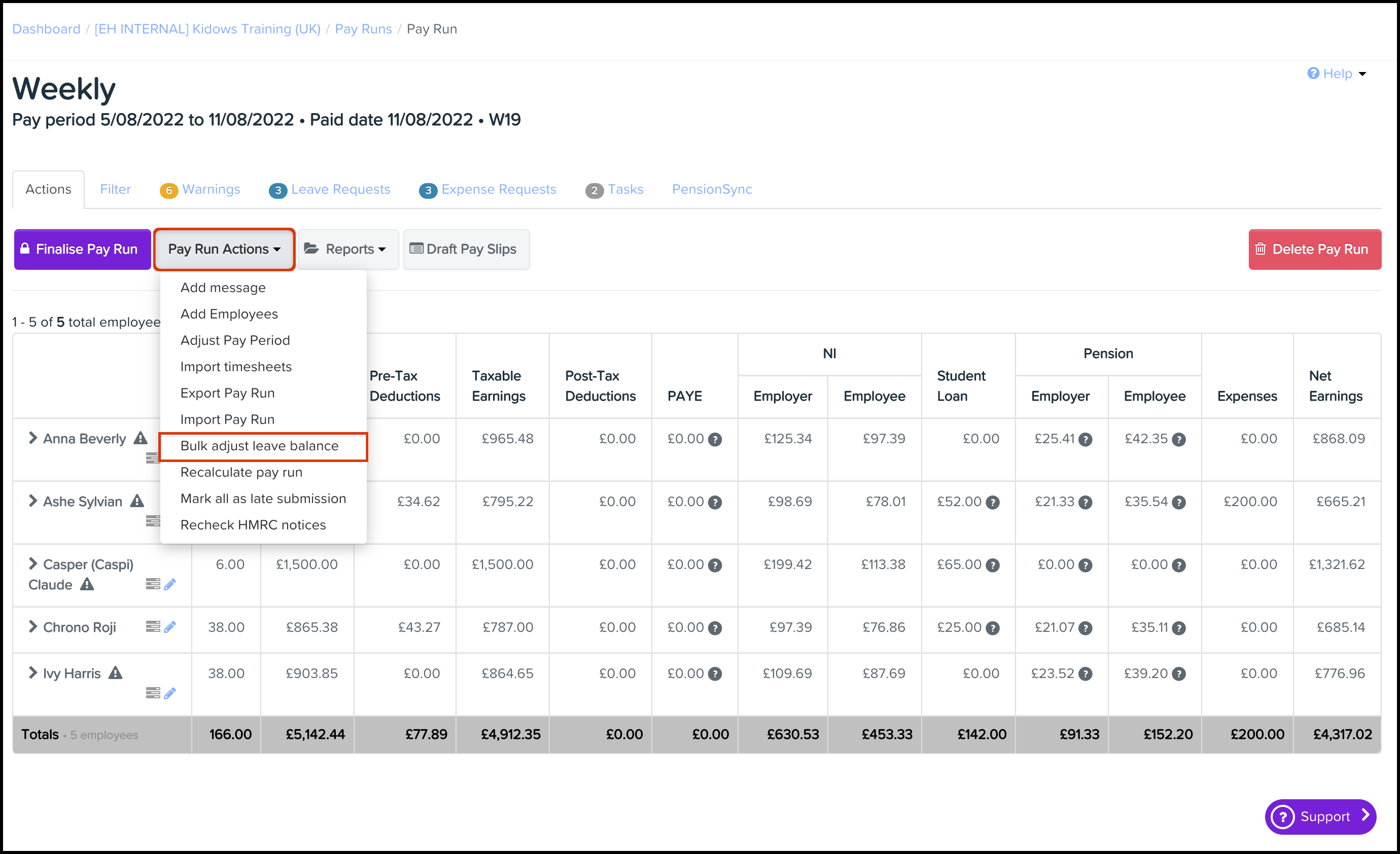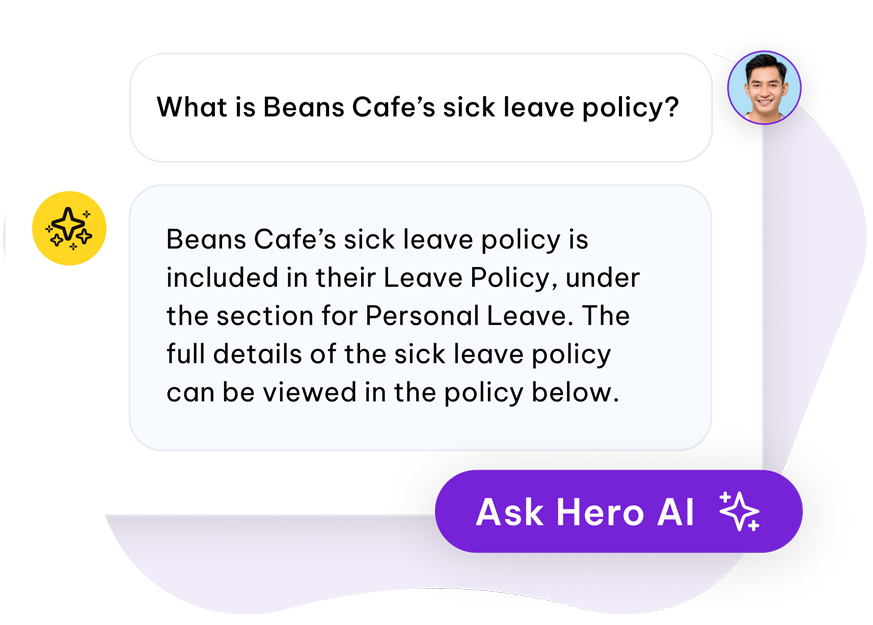
In a startup world where down rounds prevail and much beyond low-million Series A raises are practically (but not totally) unheard of, those rare megabuck funding rounds stand out just that little bit more today than they did even a year ago.
With that in mind, Employment Hero, an Australia-based recruitment, HR and payroll platform, today announced it has secured AUD$263 million ($167 million) in a Series F round of funding. This makes the Sydney scaleup a fully signed-up member of the (U.S. dollar) unicorn club, with the nine-year-old company hitting a valuation of AUD$2.13 billion ($1.37 billion) — a 75 percent hike on the valuation at its AUD$1.25 billion ($791 million) Series E round last year.
Employment Hero’s Series F round included participation from existing investors Insight Partners, AirTree, Seek and OneVentures.
‘Bigger than Atlassian’
Co-founder and CEO Ben Thompson said that the company is aiming to be one of Australia’s biggest ever technology exports, with plans to build on its current reach which sees it process $85 billion in wages annually for some 300,000 SMEs.
“We want to be recognised as an Australian business that’s gone global, with ambitions to be the largest startup that’s ever come out of Australia,” Thompson told TechCrunch in an interview.
Bigger than Atlassian, the $50 billion collaboration and productivity software behemoth?
“Bigger than Atlassian,” Thompson retorted.
The company has now raised a total of AUD$650 million ($411 million) since its inception, with its latest Series F instalment ushering in lead investor TCV, a U.S. investment firm that has previously backed the likes of Meta, Spotify, Netflix, and AirBnb. More specifically, the round was led by TCV’s London office, which gives a strong indication as to Employment Hero’s intentions for its fresh cash injection. Thompson said that the company plans to double its team on the ground in the U.K. to 180 within the next year, and he anticipates it being its biggest market within a coupe of years.
“Although we’re relatively unknown in the U.K., we’ve already got 20,000 SME customers and 200,000 employees paid there every month,” Thompson said.
All work

Employment Hero founders Ben Thompson (CEO) and Dave Tong (CPTO) Image Credit: Employment Hero
Founded in 2014 by Thompson and chief product & technology officer (CPTO) Dave Tong, Employment Hero in its original guise was an integrated, cloud-based HR and payroll platform, replete with jobs board, timesheet management, and related bells-and-whistles, perhaps along the lines of HiBob or Personio — companies that have hit fairly lofty billion-dollar valuations themselves in recent times. In the intervening years, Employment Hero has expanded into all manner of tangential toolings, serving as what it calls a “fully-autonomous solution for SMEs to recruit, pay and manage” their workforce.
The company has also transitioned into an employer of record (EOR) through Global Teams which it launched mid-pandemic, helping companies to manage their globally distributed workforce, similar to something like Deel or Remote. In effect, Employment Hero assumes legal and administrative responsibilities for companies’ workforce wherever they be.
Employment Hero’s core markets where its entire product range is available includes Australia, New Zealand, Singapore, Malaysia and the U.K., though its EOR product is available in 35 countries. As you might expect, Employment Hero also serves as the EOR for its own internal headcount. Employment Hero grew from less than 200 employees before the pandemic to some 925 fully-remote workers today, spread over 19 markets.
“We went fully distributed, remote First, on the 13th of February 2020, when we had a COVID case in the office and had to go home — and we’ve never gone back,” Thompson said. “And it’s been awesome, we’ve just embraced it.”

Employment Hero dashboard Image Credit: Employment Hero
The swag factor
Employment Hero also has what it calls a “super app” in the form of Swag, which covers every facet of the individual’s financial life — inside and outside of work. This includes a built-in digital wallet, debit card, cashback offers, online discounts, and more. Many of these features can be used independently of the core Employment Hero platform, meaning any consumer can open a Swag account. This includes people who are actively looking for work, with a recently-launched SmartMatch feature that matches jobseeker profiles with jobs listed on the Employment Hero platform.
“We’re creating micro talent pools so that any employer on our platform can log in and see that they’ve got a queue of people who are interested in working for them, and the specific roles that they’re interested in filling,” Thompson said. “So if somebody resigns tomorrow, they’ve already got a talent pool. If they need to duplicate a role tomorrow because they’re growing quickly, they’ve already got a talent pool. It completely changes the way that businesses will recruit in the future.”

Swag card Image Credit: Employment Hero
And where a company is also an Employment Hero customer, employees can use Swag across a broader gamut of use-cases including accessing timesheets, managing leave requests, and reading company alerts.
“What we realised was that ’employment’ is more than just being employed in the job,” Thompson said. “It’s how people find work, manage work, how they get paid, and how they spend and save. That means that we want to make sure that the individual employee has a ‘super app’ that not only helps them find work in better ways, not only helps them manage work in better ways, but also gets them paid.”

Swag app Image Credit: Employment Hero
As with just about every other company, Employment Hero is also fully embracing generative AI. Just this week, the company rolled out “Hero AI” to give employees answers to some of the most commonly asked questions, or even doling out shoutouts to team members with Hero AI taking care of the message specifics.
Hero AI leans on OpenAI’s GPT large language models (LLMs) (though doesn’t integrate with ChatGPT itself) and extracts information from customers own data sources, such as company policy documents,

Hero AI Image Credit: Employment Hero
Unsung (employment) hero
Earlier this year, one of Employment Hero’s rivals, Rippling, raised $500 million at a dizzying $11.25 billion valuation, albeit as part of a rushed response to the Silicon Valley Bank (SVB) debacle. That, coupled with other recent big raises from the likes of HiBob, which announced another $150 million in funding just last month, points to a thriving sector.
But Thompson suggests that Employment Hero might not quite be getting the recognition it deserves.
“We feel as though we’ve been a bit of an Australian underdog… you read about Rippling and HiBob and these companies, and this is like our coming of age,” Thompson said. “We want to be known for being global and and being the biggest, we just haven’t been recognised as such.”
There’s no escaping the similarities between Rippling and Employment Hero though. The former has been chasing ever greater segments of the corporate payments stack, from spend management to global payroll and beyond. Notably, it also recently launched in the U.K., a move that quite feasibly may have spurred Employment Hero into action. However, Thompson insists that its latest news has nothing to do with that whatsoever.
“Absolutely not — realising our own mission, to make employment easier and more valuable for everyone, as soon as possible is what drives our actions,” Thompson said.
Moreover, Thompson points to Swag as one of the major ways Employment Hero is looking to separate itself from the pack.
“The combination of a consumer app with an employer platform is unique, and it puts us in a really compelling position to help employees as much as we help employers — and no one else is doing that,” Thompson said.
A quick peek at other industries reveals other success stories in an otherwise arid funding landscape. London’s Quantexa, which provides AI smarts to help banks thwart fraud, doubled its valuation to hit unicorn status off the back of a $129 million funding round back in April. Elsewhere, A16z-backed chatbot startup Character.Ai closed a chunky $150 million Series A round at a $1 billion valuation — two months before it even launched. And then there’s Boston’s Gradiant, which hit the magical $1 billion valuation mark for its AI-enabled wastewater management platform.
But these are generally outliers. The word “unicorn” today — in the context of company valuations, at least — is now more closely aligned with what it was initially meant to describe: something rare. Data indicates that unicorns declined 89% in Q1 2023 from their 2021 peak, which saw 163 new unicorns birthed in each of that year’s final two quarters alone.
The fact is, employment is something that impacts just about everyone on Earth, with SMEs — Employment Hero’s core market — contributing significantly to the global economy. Data from the International Labour Organization (ILO) suggests that SMEs contribute more than 50% of GDP in most OECD countries, a figure that rises to as much as 70% in some markets. And that is why Employment Hero, Rippling, HiBob and their ilk continue to raise big money at big valuations — it’s much more than “HR,” a catch-all term that these kinds of platforms tend to get lumped together under.
“We don’t look at it as HR, we look at it as employment — that there is a process of finding work, managing the work that you’ve got, managing the time and how you get paid for it, how you interact with your employer, and making sure that every dollar you earn you can spend in the smartest way and with the most buying power,” Thompson said.
Looking to the future, Employment Hero has bigger aspirations too, with Thompson looking to upend the way people get paid. Today, companies on Employment Hero can offer workers InstaPay, which basically enables early access to money they’ve already earned — so rather than waiting until pay-day at the end of the month, employees can request up to half of their earned wages in advance for a small fee. However, Thompson is eyeing a transition to real-time pay, which means that the established norm of ‘payment in arrears’ (i.e. working two weeks or a month before getting paid) will be replaced by something a little more real-time. And this is where it sees Swag changing the game down the line.
“Daily pay is coming — it’s not there yet, but where we’re going with this is to give people the option of being paid daily,” Thompson said. “Now, that completely changes the way that people associate work and money — we’re aiming to combine flexibility of gig work with the quality of employment. Swag is going to change the global financial system.”